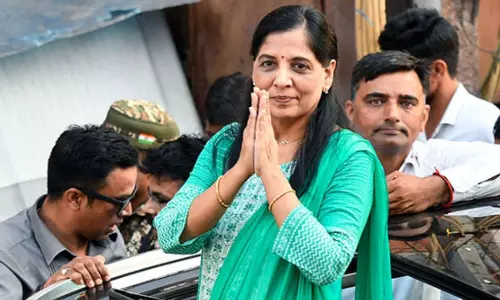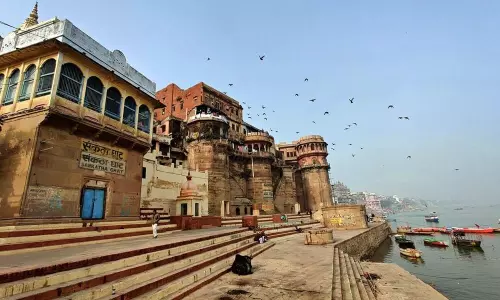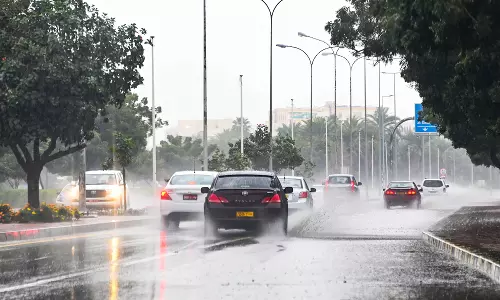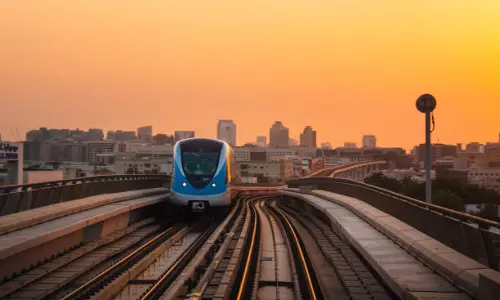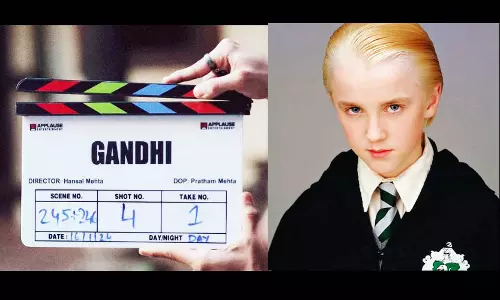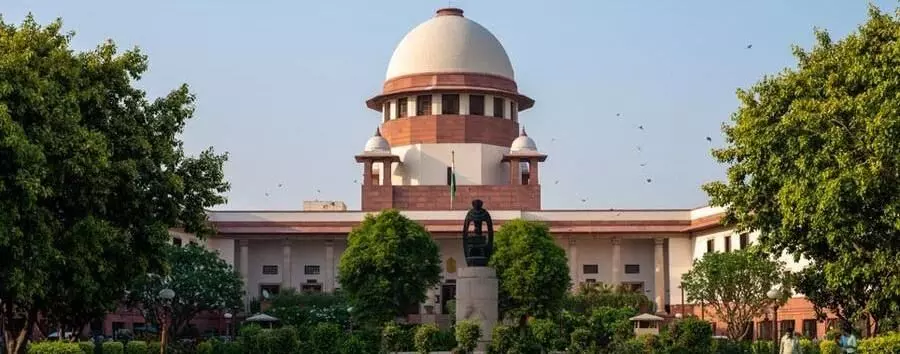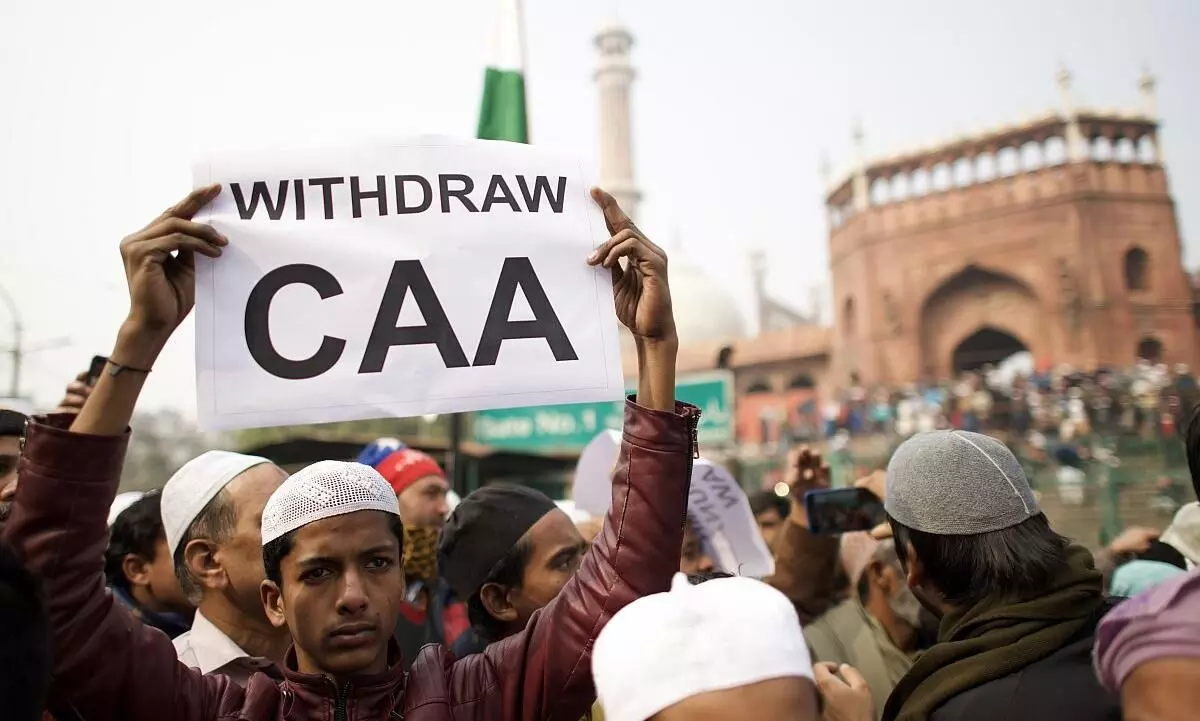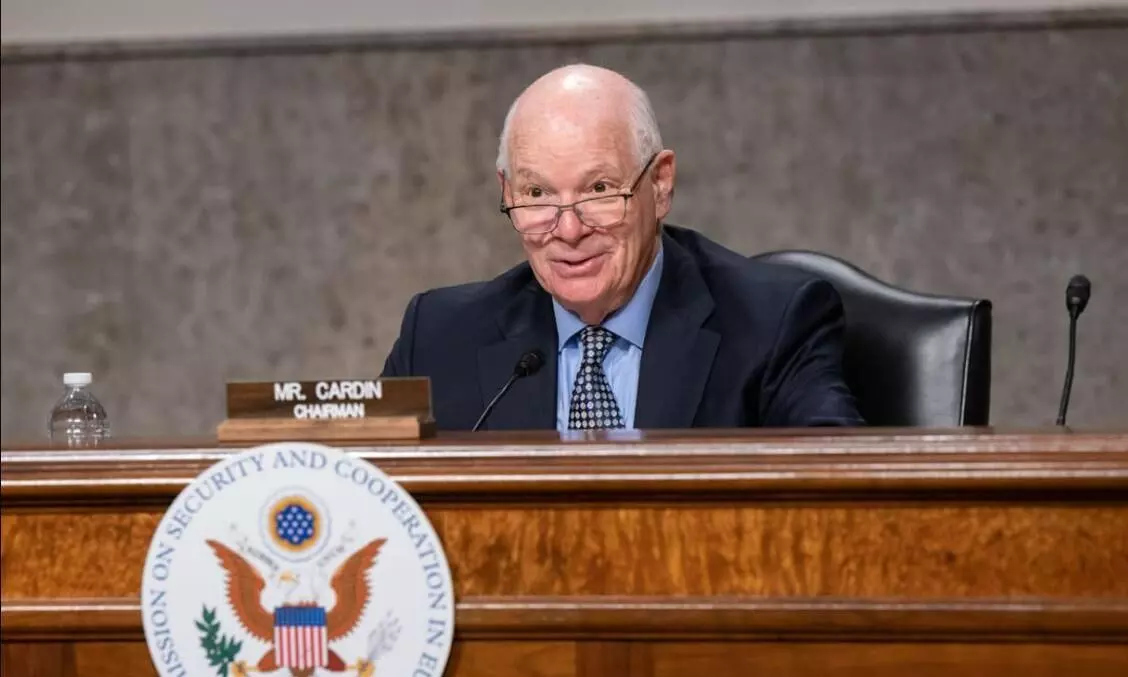
237 petitions on CAA before Supreme Court today
text_fieldsNew Delhi: The Citizenship Amendment Act (CAA), which the Centre decided to enact weeks before the Lok Sabha election, has caused controversy. Today, the Supreme Court will consider a batch of 237 petitions that challenge the law. The case will be heard by a bench headed by Chief Justice of India DY Chandrachud and including Justices JB Pardiwala and Manoj Misra.
The petitioners include the Democratic Youth Federation of India (DYFI), Congress leader Jairam Ramesh, Trinamool leader Mahua Moitra, AIMIM chief Asaduddin Owaisi, besides the Indian Union Muslim League (IUML), a political organisation predominantly based in Kerala.
The two organisations petitioned the Supreme Court to halt the law's execution the day after the Centre notified the CAA rules. They referred to CAA as being "discriminatory" against the Muslim population.
Several petitions had been filed against the Citizenship Amendment Bill after it passed the Parliament back in 2019. However, because the rules had not been notified, the court had not put a stop to its implementation. Senior Advocate Kapil Sibal informed the court on Friday that as the rules had not been announced at the time, there was no need for a pause. Then, Solicitor General Tushar Mehta stated that it made no difference in that the rules were announced prior to the elections.
The law permits non-Muslim migrants escaping religious persecution in Bangladesh, Pakistan, and Afghanistan to apply for Indian citizenship. A person may apply for citizenship under the CAA if they are a member of the Hindu, Sikh, Buddhist, Jain, Parsi, or Christian communities and they came to India on or before December 31, 2014.
The timing of the law's implementation—four years after it was approved by Parliament—has drawn criticism from the opposition against the Narendra Modi government. As per party leader Jairam Ramesh, the action is "evidently designed to polarise the elections, especially in West Bengal and Assam."
Mamata Banerjee, the chief minister of Bengal and leader of the Trinamool Congress, has expressed questions about the validity of the CAA and stated that there is a plot to "snatch citizenship rights". "BJP leaders say CAA gives you rights. But the moment you apply for citizenship, you become illegal migrants and you will lose your rights. You will lose rights and be taken to detention camps. Please think before you apply," she said.
The Opposition's claims have been discredited by the Centre. The opposition is engaging in the "politics of lies," according to Home Minister Amit Shah, who emphasised that the CAA is not "unconstitutional." Regarding when the bill will be implemented, he stated, "BJP made it clear in its 2019 manifesto that it will bring CAA and provide Indian citizenship to refugees (from Pakistan, Bangladesh and Afghanistan). BJP has a clear agenda and under that promise, the Citizenship (Amendment) Bill was passed in both houses of Parliament in 2019. It got delayed due to Covid."
He has also said that minorities of the country "need not be afraid because CAA has no provision to take back the rights of any citizen".





